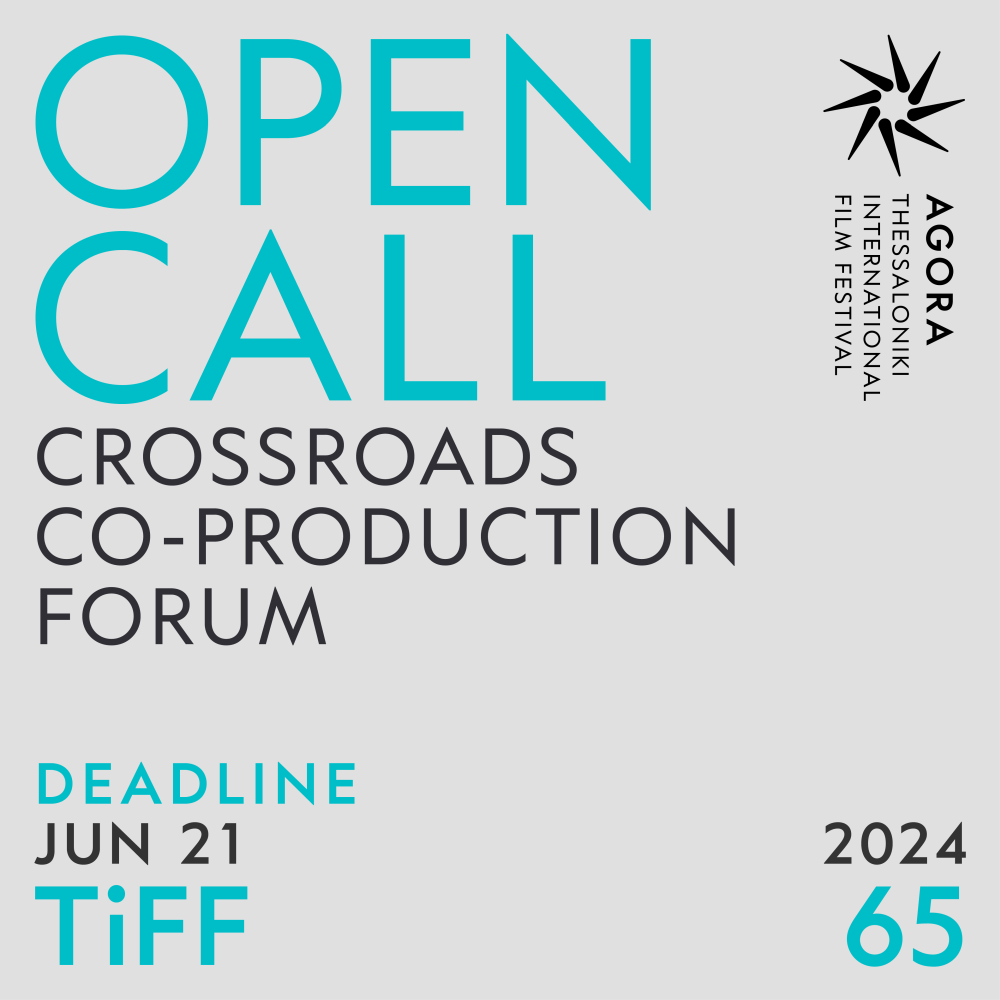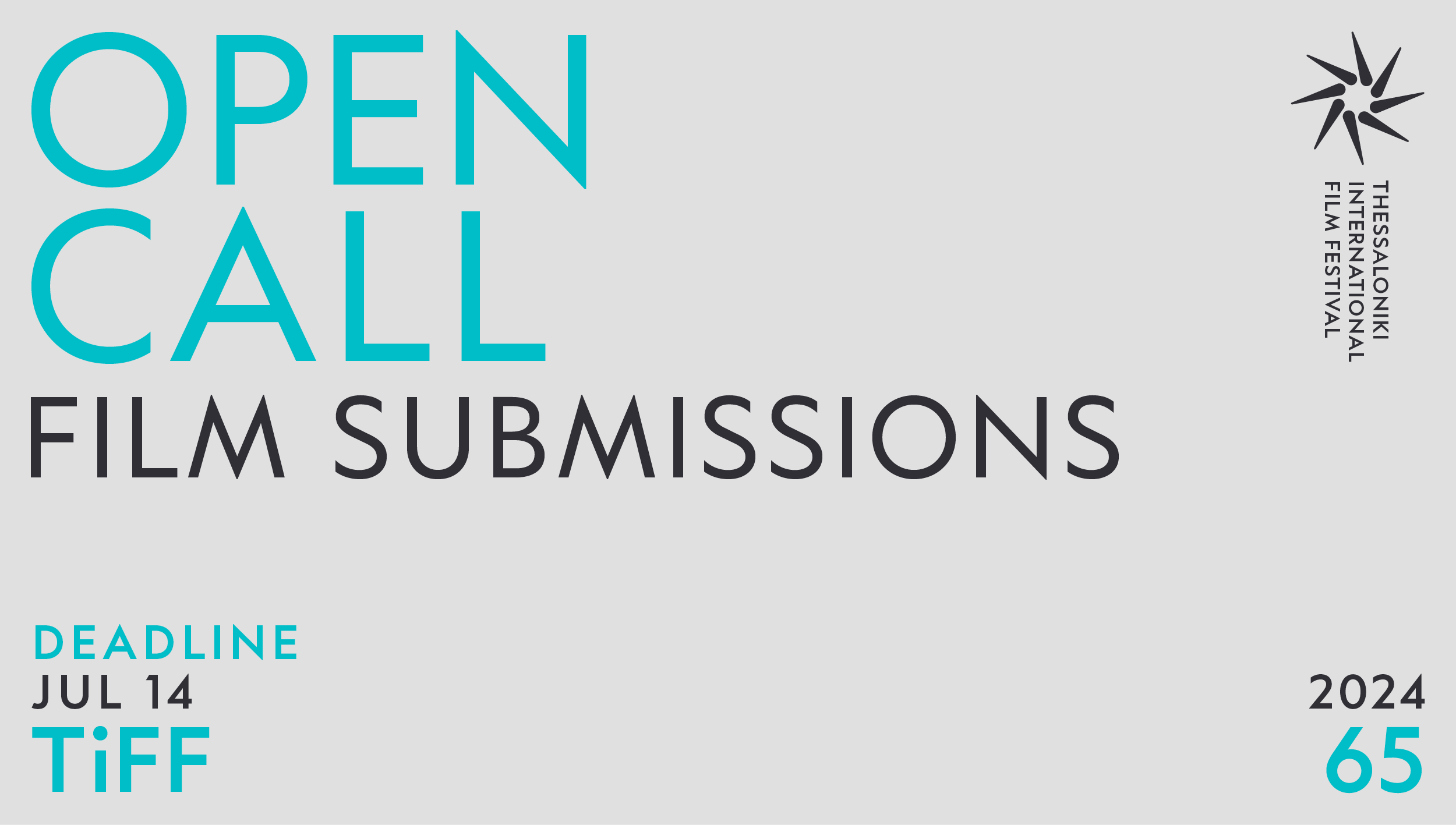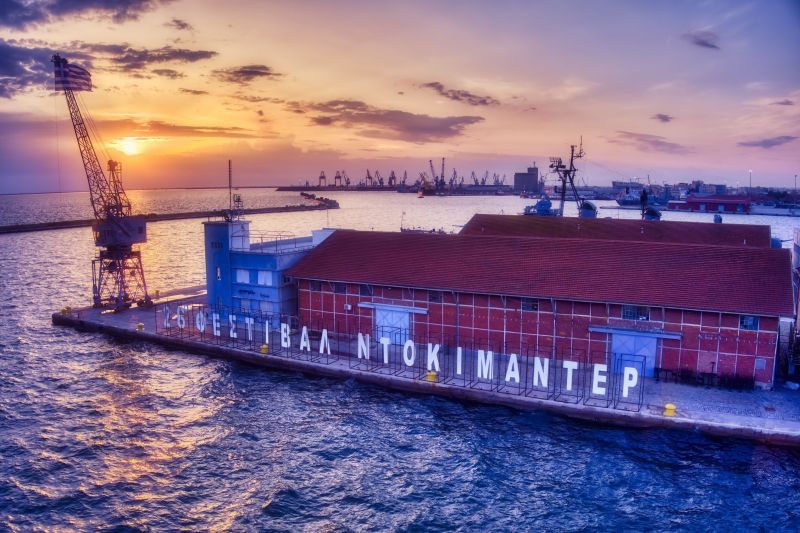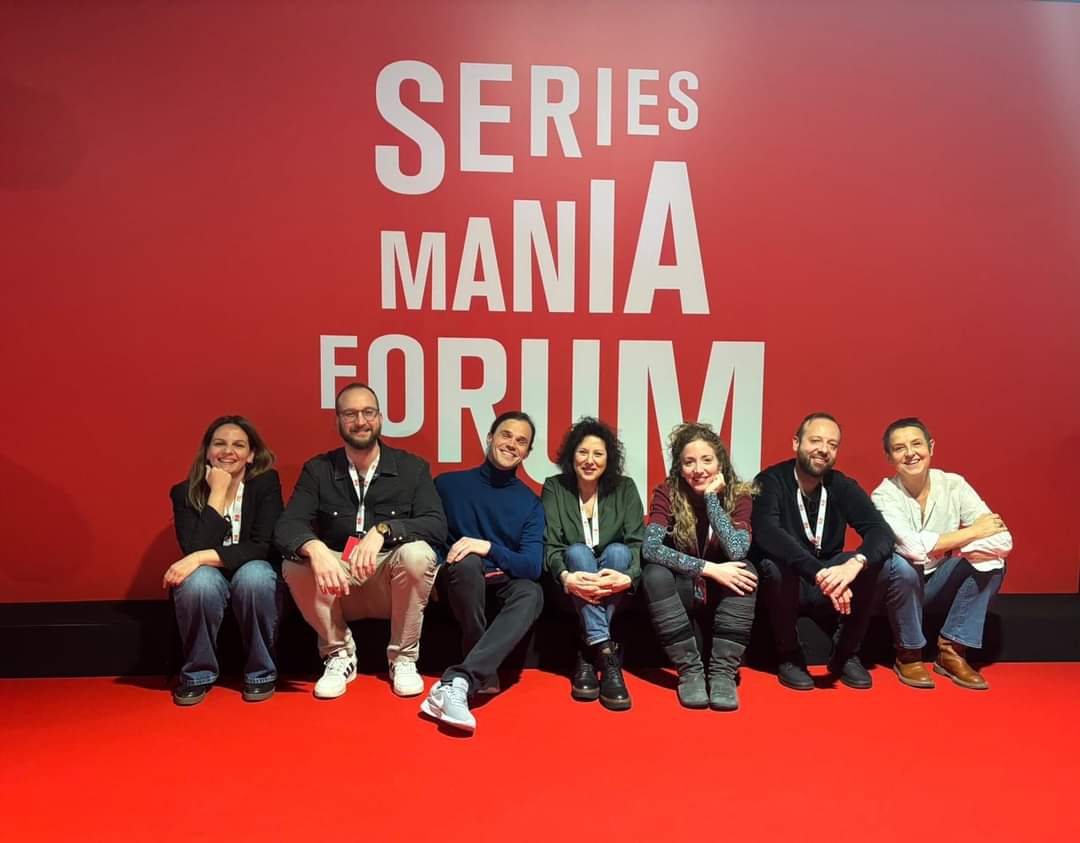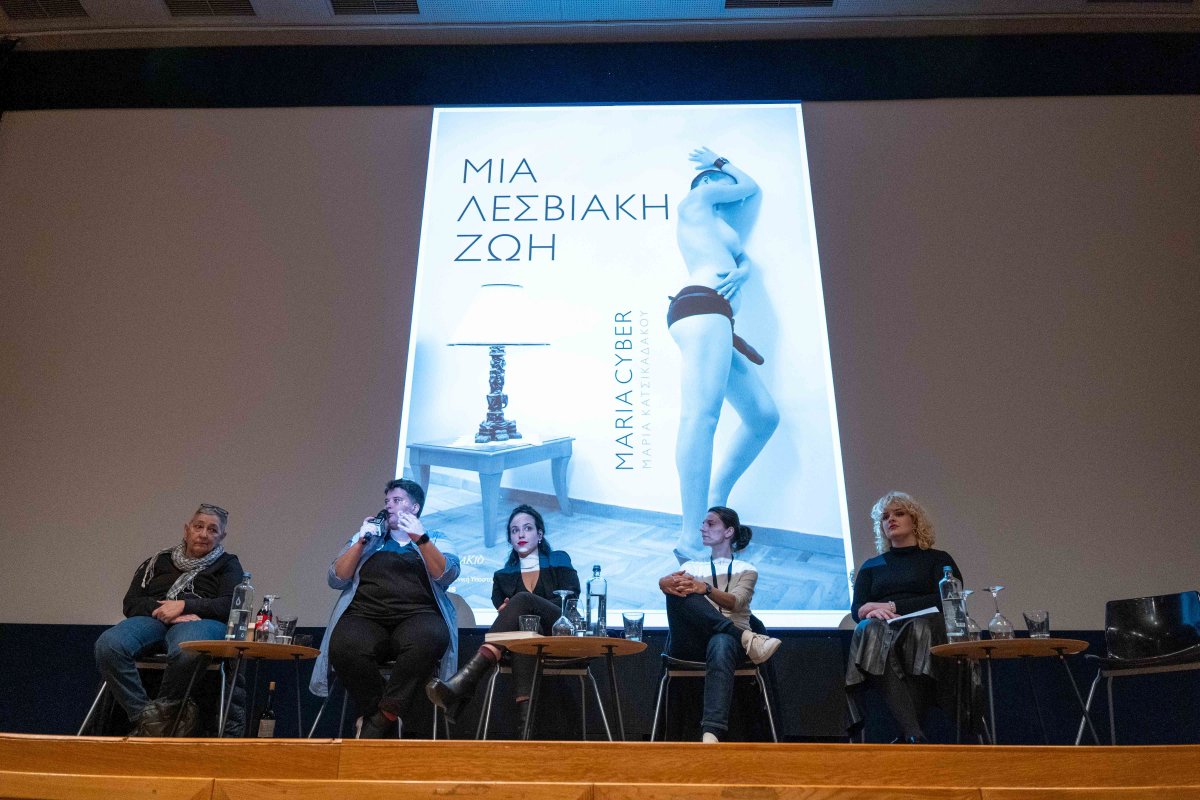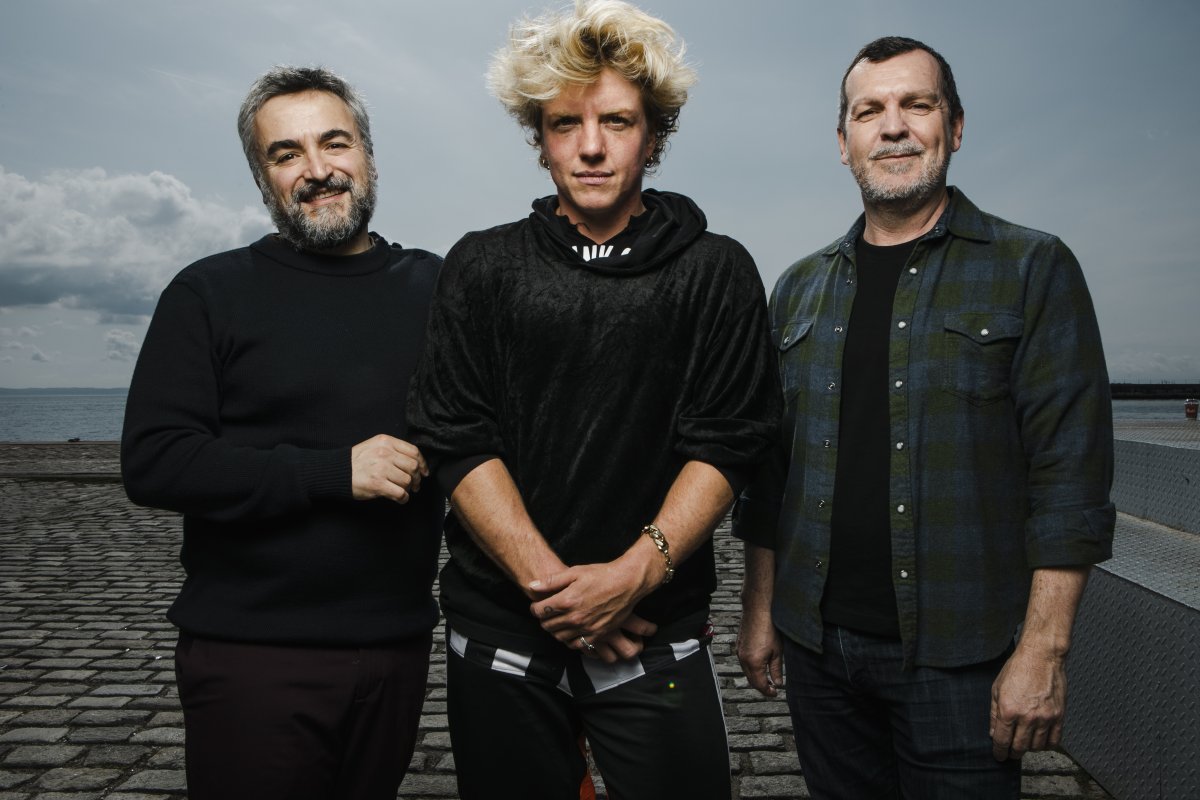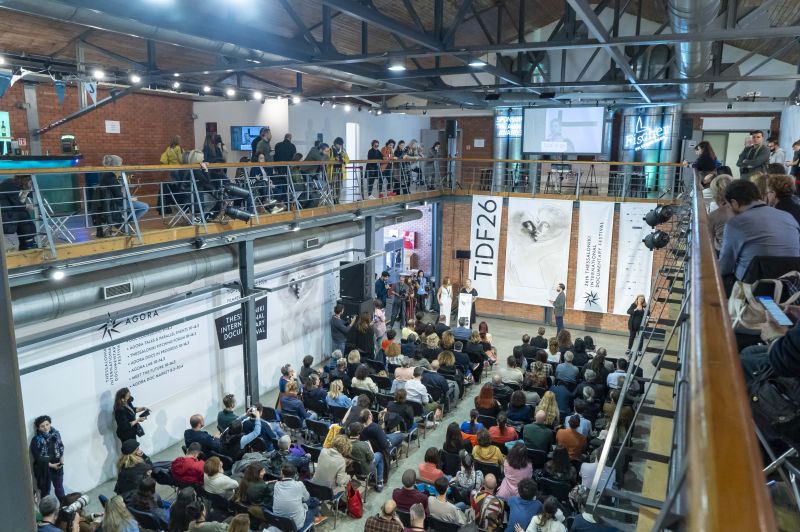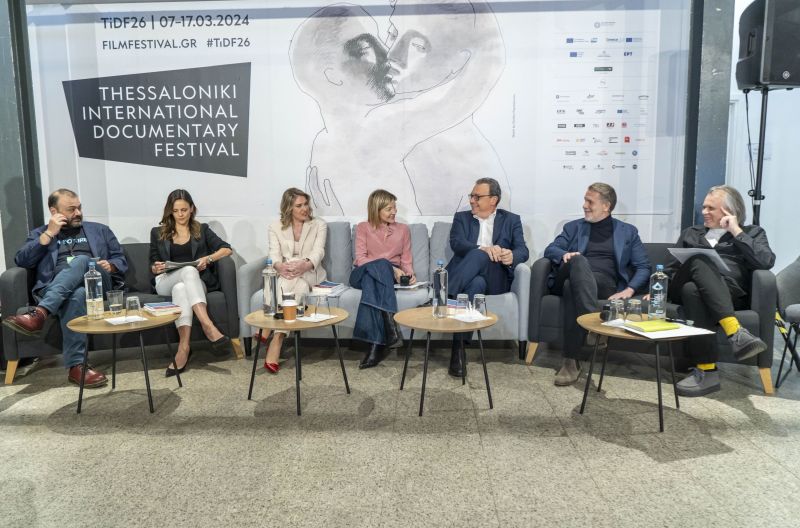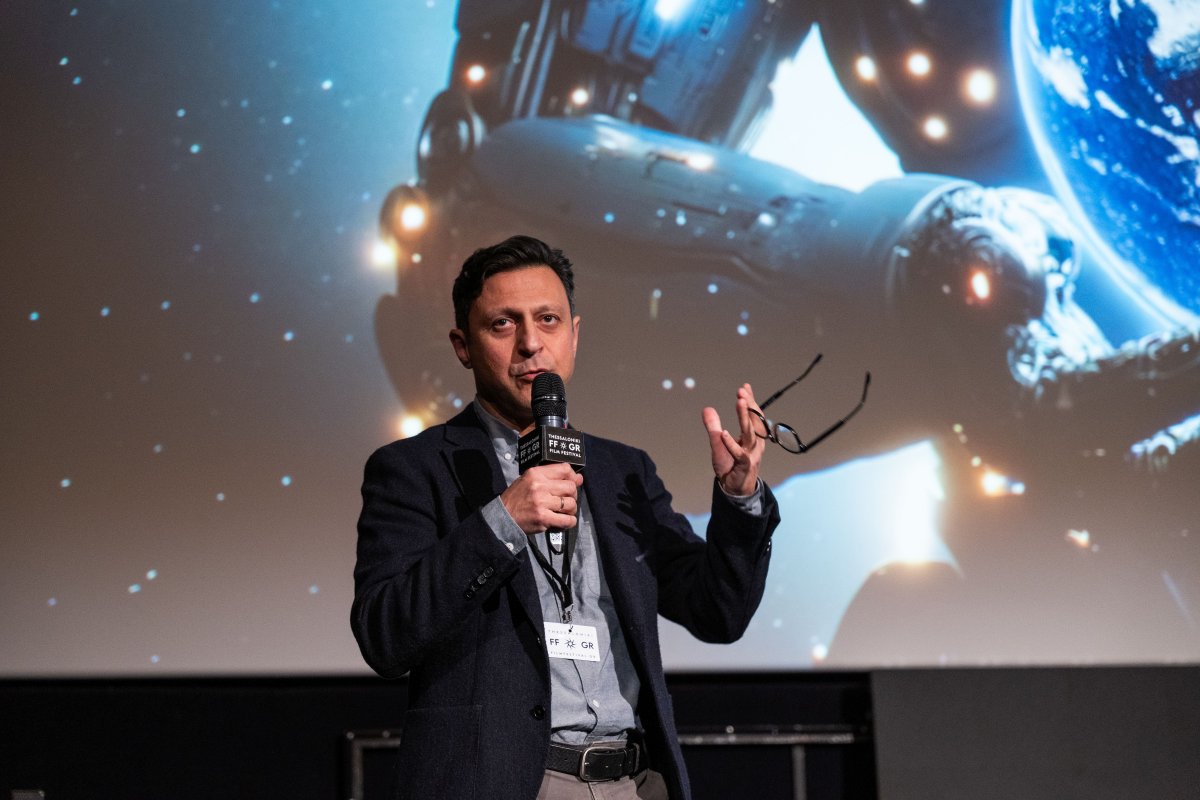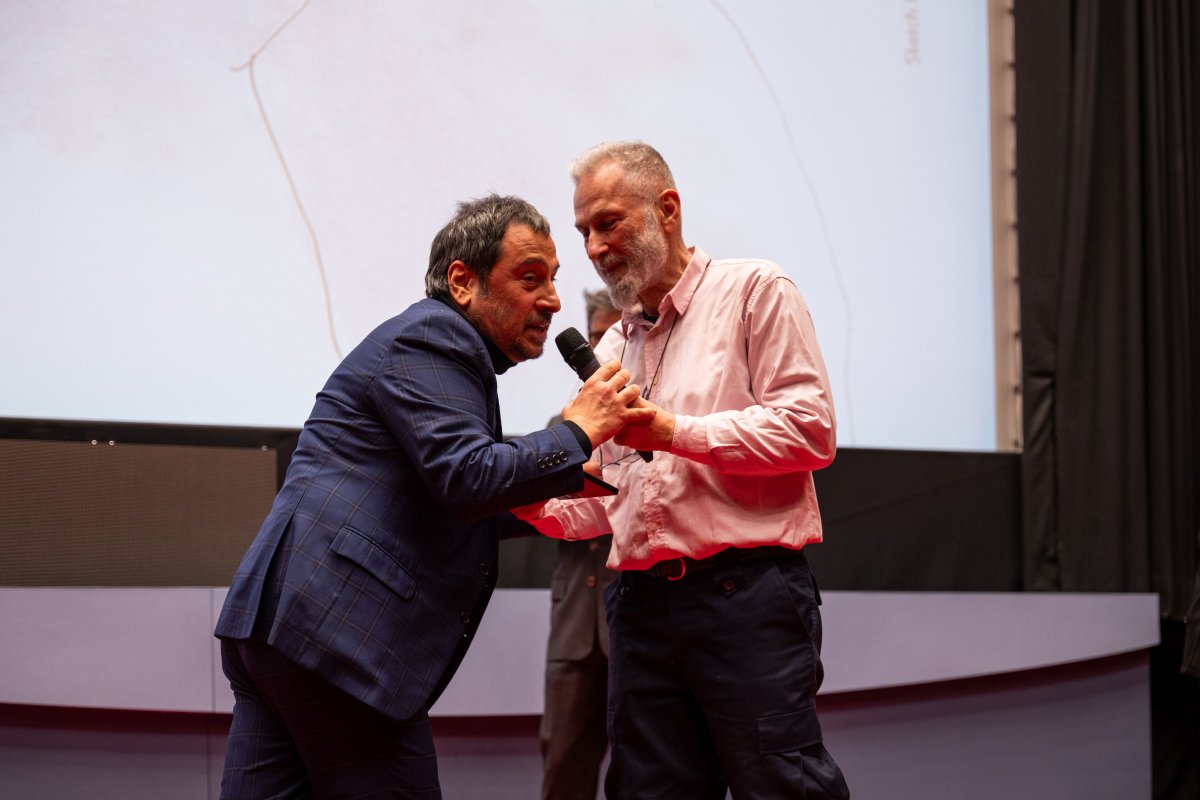50TH THESSALONIKI INTERNATIONAL FILM FESTIVAL
WHY CINEMA NOW?
November 13-22, 2009
BALKAN SURVEY
For the 16th consecutive year, the Balkan Survey section of the Thessaloniki International Film Festival, programmed by Dimitri Kerkinos, showcases a selection of the most important Balkan films of the year. Its main targets are to establish communication between the filmmakers of the area and an international audience and to acquaint the Greek public with the social realities of the Balkan region. “Additional initiatives such as the script-development Balkan Fund and the Balkan Works in Progress provide opportunities to buyers and distributors to discover projects in the final stages of production and make the Festival’s aim to promote Balkan cinema in the international market a concrete reality”, states Festival Director Despina Mouzaki. A Tribute to Serbian director Goran Paskaljevic in his presence will complement the main program of this year’s Balkan Survey.
This year’s 50th TIFF Balkan Survey main program presents:
The Balkan Survey core program includes features from Albania, Bulgaria, Croatia, Romania, Serbia, Slovenia and Turkey. For the fifth consecutive year, the TIFF audience will vote for the best Balkan film. The award will be backed by a 2.000-euro purse.
Following last year’s Romanian Shorts Spotlight, four feature films by Romanian filmmakers will be screened during the 50th TIFF.
This year’s Cannes Un Certain Regard winner, Police, Adjective by Corneliu Porumboiu, uses a mundane police investigation to reveal the ills of contemporary Romanian society. The story of a policeman who –very slightly– rebels by not arresting a teenager for smoking marijuana, it is a fascinating study of bureaucracy, the absurdity of power and the relationship between the individual and the state.
Radu Jude’s debut feature, The Happiest Girl in the World (Balkan Fund 2007 participant) is inspired by a real incident from Jude’s work in the ad business and explores not only the pitfalls of filmmaking itself, but also the relationship between a girl and her oppressive, greedy parents. Jude shares his contemporaries’ capacity to see the big picture by focusing on the small human details; The Happiest Girl is a story about family, depicting the ways by which capitalism affects a post-communist country in 2009.
Τitus Muntean’s second feature, The Kino Karavan (Crossroads 2007 participant), on the contrary, is a period piece about the communist propaganda films that traveled throughout Romania during the 60s. When the titular movie truck arrives in a remote village and faces various practical problems, Muntean effectively uses this bizarre microcosm to show the methods of persuasion and the policy of fear inflicted on the country at the time. European premiere.
Razvan Radulescu, screenwriter of The Death of Mr. Lazarescu, co-directed his first film, First of all, Felicia (Balkan Fund 2007 winner) with Melissa de Raaf. They constructed a film centered on the powerful performance of Ozana Oancea, as a woman who has left Romania for Holland; every visit back home intensifies the complicated relationships of a family apart, torn into two completely different worlds.
Turkey is represented by two films:
In Wrong Rosary by Mahmut Fazil Coskun, a muezzin falls in love with a Catholic nurse. Through their love story, Istanbul emerges as a city of numerous cultures, religions and intense emotions.
Men on the bridge by Asli Ozge, blurs the boundaries between fiction and documentary and uses Istanbul as the colorful canvas for the story of three men whose difficulties and dreams are parts of the city itself. The bridge of the title, the Bosphorus Bridge, which the protagonists cross daily, marks the old borders of a changing world.
Katalin Varga by Peter Strickland was completed when Strickland met his production partners in the TIFF film market (Agora) 2007. Despite the director’s British nationality, the film was shot in Transylvania with Romanian actors; it is the story of Katalin, who seeks revenge from the father of her son. The film, owing to its eerie location, the director’s visual style and the skillful use of the genre archetypes, becomes an absorbing study of character psychology.
Slovenian Girl by Damjan Kozole is the story of a student/prostitute, set in Ljubljana during the Slovenian presidency of the European Union. The protagonist’s double life and her emotionless pursuit of a wealthy, “easy” life, works as a metaphor for the questionable values of capitalism and the way they have seeped into the individual lives of those living in post-communist countries.
In Here and Τhere (Balkan Fund 2006 winner), Serbian director Darko Lungulov deals with another major issue of the region, that of immigration. Drawing from his own experiences, Lunglulov shot his humorous character study both in Belgrade and New York; it is a tale of two cities and a tale of two men, a Serbian and an American, whole lives converge in an improbable, oddball way.
Award-winning Albanian director Gjergj Xhuvani’s black comedy East, West, East - The Final Sprint cleverly demythologizes the fall of communism in his country, as well as the perception of the Western way of life as a paradise to aspire to. In the film, taking place in 1990, a former champion is ordered by the authorities to pull together a cycling team and represent Albania in the Tour de France. The team reaches Trieste when they discover that the revolution has broken out and they must return home. European premiere.
The first Bulgarian film to screen in Cannes in 29 years, Eastern Plays by first-time director Kamen Kalev, is the story of a recovering drug addict against the backdrop of neo-Nazi gangs and violence in contemporary Sofia, which are hinted to be a result of right-wing politics. The film’s extraordinary protagonist, Christo Christov, died in an accident shortly after the end of production.
Finally, Metastases by Croatian director Branko Schmidt (Balkan Fund 2007 special mention), shares with Eastern Plays its concern for a post-war generation of 30-somethings that has difficulty adjusting to a new world order and to the new variables brought on by capitalism. Unemployment, drug addiction, racism and violence are some of the aftereffects of the changes; changes common in all post-communist countries, changes that shape the core of Balkan filmmaking.
BALKAN SURVEY FILMS:
East, West, East -The Final Sprint, Gjergj Xhuvani, Albania / Italy, 2009
Eastern Plays, Kamen Kalev, Bulgaria / Sweden, 2009
First of All, Felicia (Felicia inainte de toate), Razvan Radulescu & Melissa De Raaf, Romania, 2009
Here and There (Tamo i ovde), Darko Lungulov, Serbia / USA, 2009
Katalin Varga, Peter Strickland, Hungary / Romania / UK, 2009
Kino Karavan (Caravana cinematografica), Titus Muntean, Romania / Germany, 2009
Men on the Bridge (Koprudekiler), Asli Ozge, Germany / Turkey, 2009
Metastases (Metastaze), Branko Schmidt, Croatia, 2009
Omelette (Omlet), Nadejda Koseva, Bulgaria, 2009 (short film)
Party (Tulum), Dalibor Matanic, Croatia, 2009 (short film)
Police, Adjective (Politist, Adjective), Corneliu Porumboiu, Romania, 2009
Slovenian Girl (Slovenka), Damjan Kozole, Slovenia / Germany / Serbia, 2009
The Happiest Girl in the World (Cea mai fericita fata din lume), Radu Jude, Romania, 2009
Wrong Rosary (Uzak ihtimal), Mahmut Fazil Coskun, Turkey, 2009



